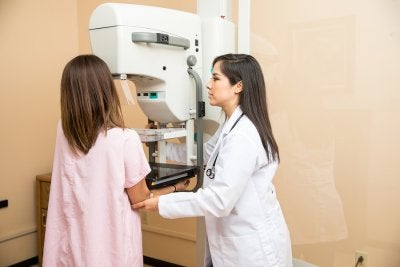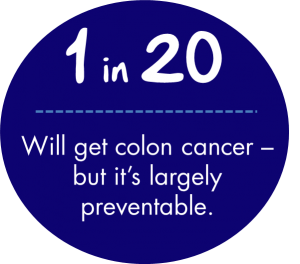-
Ovarian Cancer Awareness Month: Understanding Your Risk Factors

Ovarian cancer is a type of cancer that develops in a woman’s ovaries. While ovarian cancer is relatively rare, it’s important to diagnose it in its earliest stages so that it can be treated effectively. Unfortunately, ovarian cancer is difficult to diagnose easily because its symptoms are subtle. Since there is no screening for early ovarian cancer, it’s important to talk to your doctor if you are considered to be at risk. September is Ovarian Cancer Awareness Month, so it’s the perfect time to check yourself for the symptoms which include bloating, pelvic or abdominal pain, vaginal bleeding, weight gain or loss, change in bowel or bladder habits, to name a few. These are some of the main risk factors for developing ovarian cancer:
- Family history of ovarian or breast cancer
- A personal history of breast cancer prior to age 40
- A personal history of breast cancer prior to age 50 as well as one or more relatives diagnosed with breast or ovarian cancer at any age
- Two or more close relatives diagnosed with breast cancer prior to age 50, or with ovarian cancer diagnosed at any age
- Ashkenazi Jewish Heritage and a personal history of breast cancer prior to age 50
- Ashkenazi Jewish Heritage and a first or second-degree relative diagnosed with bread cancer prior to age 50, or with ovarian cancer at any age
- The BRCA1 or BRACA2 genes put you at high risk. 1 in 5 or higher if you inherited certain mutations in genes that are involved in cell growth division and DNA repair
If you are concerned about a misdiagnosis or possible medical error, contact the law firm of Pegalis & Erickson, LLC in New York. For 46 years, we have advocated for people of all ages, in order to help our clients financially and make healthcare safer for everyone. You can reach us today by calling (516) 684-2900.
Attorney Advertising
-
Spotlight on Colorectal Cancer
Colorectal cancer is a type of cancer that originates in either the colon or the rectum. It generally starts as a polyp in the large intestine that eventually develops into cancer. Unfortunately, colorectal cancer does not typically present many noticeable symptoms in its early stages. This is why regular screenings are critical if you are over the age of 50, which is when your risk of colorectal cancer is highest. People who have gastrointestinal issues such as Crohn’s disease or who have a family history of the disease are at a higher risk of developing colorectal cancer. Blood in the stool, unexplained weight loss, and chronic fatigue are some of the most common warning signs of this cancer.
 If you are concerned about a misdiagnosis or possible medical error, contact the law firm of Pegalis & Erickson, LLC in New York. For 45 years, we have advocated for people of all ages, in order to help our clients financially and make healthcare safer for everyone. You can reach us today by calling (516) 684-2900.
If you are concerned about a misdiagnosis or possible medical error, contact the law firm of Pegalis & Erickson, LLC in New York. For 45 years, we have advocated for people of all ages, in order to help our clients financially and make healthcare safer for everyone. You can reach us today by calling (516) 684-2900. -
The Challenges in Diagnosing Cancer
Diagnosing cancer in its earliest stages can make an enormous difference in how successful treatment is. By the same token, failing to diagnose cancer on a timely basis can reduce the effectiveness of treatment. Even if medical practitioners are careful and conscientious, however, it can still be difficult to diagnose many forms of cancer. These are some of the types of cancer that present the greatest challenges:
Pancreatic Cancer
While it is considered relatively rare, pancreatic cancer also has one of the lowest survival rates of any type of cancer. The symptoms are subtle and can easily be mistaken for the signs of a different condition. There is also no widely agreed-upon method for effectively detecting this cancer at its earliest stages.Liver Cancer
Like pancreatic cancer, liver cancer does not usually show any obvious symptoms in its early stages. Since the liver is located deep inside the body, the tumors are impossible to detect through self-examination. By the time it can be more easily diagnosed, the disease has usually spread to the point where it is much more challenging to treat. Brain Cancer
Brain Cancer
Brain cancer is one of the most difficult forms of cancer to identify. There is no way to screen for a brain tumor, and the symptoms—which include headaches and muscle weakness—are readily confused with those of other illnesses. Unfortunately, brain cancer is not usually diagnosed until its later stages.Ovarian Cancer
Cancer of the ovaries is the deadliest type of reproductive cancer. As with other hard-to-detect cancers, ovarian cancer does not present any obvious symptoms at first. It is also difficult to detect during pelvic exams, and it is not usually found during Pap tests. There is no reliable screening for ovarian cancer, so it’s important to see a physician if you notice any of the warning signs—which include bloating, feeling unusually full after eating, and more frequent urination. Women who are positive for the BRCA gene are at a greater risk for developing Breast Cancer but also Ovarian Cancer. You should discuss your particular situation with your physician to establish a plan for surveillance and care options.If you believe that you or a loved one has suffered serious consequences because a medical professional failed to identify the symptoms of cancer, it’s time to talk to Pegalis & Erickson, LLC. Our legal team has nearly 50 years of experience bringing successful medical malpractice suits on behalf of our clients. For a free consultation at our law office in Long Island, New York, call (516) 684-2900.
-
Surprising Facts About Missed and Delayed Diagnoses
When most people go to the doctor, they bring with them the assumption that they will find out if there is anything wrong with their health. Unfortunately, this isn’t always the case. It is nowhere near as rare as you might assume for medical practitioners to fail to diagnose a serious health problem—or to diagnose it too late. Here are some facts that might surprise you:
 Diagnostic errors are extremely common. According to a recent study by the Institute of Health, about 5 percent of all Americans who visit a medical professional in the course of a year will receive a faulty diagnosis. This adds up to about 12 million people. The study also observed that the number of diagnostic errors appears to go up over time, as medical treatments increase in complexity.
Diagnostic errors are extremely common. According to a recent study by the Institute of Health, about 5 percent of all Americans who visit a medical professional in the course of a year will receive a faulty diagnosis. This adds up to about 12 million people. The study also observed that the number of diagnostic errors appears to go up over time, as medical treatments increase in complexity. Almost everyone will receive at least one wrong diagnosis. While 5 percent may not sound like an enormous amount, the number of people who are wrongly diagnosed multiplies with each passing year. The Institute of Health study found that most people living in the U.S. will experience at least one late—or flat-out wrong—diagnosis at some point in their lives.
Diagnostic errors can be hard to identify. It’s easy to assume that you’ll know when you’ve been wrongly diagnosed—but that isn’t necessarily true. Many people do not discover for years that they have gotten the wrong diagnosis. Diagnosing a patient is a challenging and multifaceted process, and there are many points at which the diagnosis can go astray. In many cases, the issue is lack of proper communication between medical professionals and their patients.
If your life—or the life of a loved one—has been disrupted by a delayed diagnosis, you may have a medical malpractice claim. Talk to one of the attorneys at Pegalis & Erickson, LLC, for legal guidance that will help you protect your rights. You can set up a free consultation at our office in Long Island, New York, by calling us at (516) 684-2900.
-
Breast Cancer Awareness Month
October is Breast Cancer Awareness Month, which is also a good time to be aware of some common breast cancer malpractice issues, including the misdiagnosis and delayed diagnosis of breast cancer.
Breast Cancer Misdiagnosis
Approximately one in eight women in the U.S. is affected by breast cancer according to the American Cancer Society. For women in the United States, breast cancer is the second deadliest form of cancer. It is also, unfortunately, one of the most often misdiagnosed forms of cancer. In many cases, breast cancer presents with subtle symptoms. Breast lumps, for example, are a common sign of breast cancer—yet many breast lumps are benign and coincide with hormonal changes. Sometimes, lumps are located in nearby lymph nodes in the armpit before they are located in breast tissue. Other more visible symptoms include skin changes such as dimpling of the breast, nipple discharge, itching and scaling of the nipple, and breast or nipple pain.
In many cases, breast cancer presents with subtle symptoms. Breast lumps, for example, are a common sign of breast cancer—yet many breast lumps are benign and coincide with hormonal changes. Sometimes, lumps are located in nearby lymph nodes in the armpit before they are located in breast tissue. Other more visible symptoms include skin changes such as dimpling of the breast, nipple discharge, itching and scaling of the nipple, and breast or nipple pain.Breast cancer diagnosis becomes challenging because of its nonspecific signs, which mimic many other less severe conditions. Still, it is important to mention any breast changes to your doctor, who can order further diagnostic exams to pinpoint the exact cause.
Delayed Diagnosis of Breast Cancer
A delayed diagnosis of breast cancer results in delayed treatment, which can cause women to lose their lives. Patients with invasive lobular carcinoma— a certain type of breast cancer— are especially susceptible to a delayed diagnosis, which can have serious consequences.In cases of misdiagnosis, doctors may treat patients for another condition, possibly causing damage to the body while the cancer continues to grow or even metastasize, which can result in increased symptoms and may be fatal. As with other forms of cancer, early detection, diagnosis, and treatment of breast cancer are key in increasing survival rates.
The five-year survival rate for breast cancer is nearly 100% for Stage 0 and Stage I, but a delayed diagnosis may not be found until the cancer moves into Stage II, III, or IV (which only has about a 22% survival rate).
If you have suffered from a breast cancer misdiagnosis or a breast cancer delayed diagnosis, contact Pegalis & Erickson, LLC for a case review at (516) 684-2900.
-
Knowing the Signs and Risks of Colorectal Cancer
March is officially recognized as National Colorectal Cancer Awareness Month. It’s an ideal time to take a few minutes to learn more about this deadly disease and the importance of being a proactive patient. Colorectal cancer, which affects the colon or rectum, is life-threatening, but early detection can save lives. By becoming a proactive patient, you can reduce the risk that misdiagnosis and other forms of medical malpractice will adversely affect your wellness.
Signs and Symptoms
Like other forms of cancer, colorectal cancer often doesn’t cause any noticeable symptoms until the disease has already reached an advanced stage. Therefore it is important for patients to be alert to unusual changes in their daily routine and to consult a doctor as needed. Some of the possible indicators of colorectal cancer include very narrow stools, rectal bleeding, bloody stools, diarrhea, or constipation. Some patients may experience the feeling that bowel movements are incomplete. Abdominal cramps, fatigue, weakness, and unexplained weight loss are other possible indicators.
Misdiagnosis and Delayed Diagnosis
Based on a patient’s symptoms, medical history, and physical exam, a doctor should refer the patient for appropriate diagnostic tests to check for colorectal cancer. The gold standard of colorectal cancer diagnosis is the colonoscopy. Unfortunately, primary care physicians sometimes neglect to consider cancer as a possibility. They may instead diagnose patients with inflammatory bowel syndrome (IBS), anal fissures, hemorrhoids, or diverticular disease.Risks
When a patient isn’t referred for necessary medical tests for colorectal cancer and the accurate diagnosis is delayed, that patient may miss the opportunity for timely cancer care. Early treatment can make the difference between life and death for a colorectal cancer patient. When colorectal cancer is detected in its early stages, minimally invasive surgery may be all that is needed to treat it. As the cancer spreads, the patient requires more invasive and life-altering treatments that are less likely to result in a favorable prognosis.A cancer misdiagnosis is devastating, but the medical negligence lawyers at Pegalis & Erickson, LLC can empower your family. If you suspect that medical malpractice may have caused a loved one’s wrongful death or delayed cancer diagnosis, please call us today at (516) 684-2900. Our malpractice law firm is in Long Island, New York, but is privileged to serve families beyond New York.
-
What Are the Factors Involved in Proving Misdiagnosis Malpractice?
 Misdiagnosis is a type of medical malpractice that occurs when a physician’s negligence leads to an incorrect diagnosis or delayed diagnosis that causes harm to the patient. It is important to note that misdiagnosis malpractice involves more than simply incorrectly diagnosing or delaying the diagnosis of a condition. To demonstrate malpractice, your attorney must prove medical negligence has occurred.
Misdiagnosis is a type of medical malpractice that occurs when a physician’s negligence leads to an incorrect diagnosis or delayed diagnosis that causes harm to the patient. It is important to note that misdiagnosis malpractice involves more than simply incorrectly diagnosing or delaying the diagnosis of a condition. To demonstrate malpractice, your attorney must prove medical negligence has occurred. There are three main factors in proving misdiagnosis medical malpractice. The first is to prove that a doctor-patient relationship actually existed. The second is proving that the doctor was negligent in the misdiagnosis because he or she did not provide reasonable and competent care. Lastly, your medical malpractice lawyer must show that this negligence caused harm. Errors can occur even when doctors provide reasonable and competent care, so demonstrating that the care provided was not competent is a crucial part of the case.
Does your misdiagnosis meet the criteria for medical malpractice? Call Pegalis & Erickson, LLC at (516) 684-2900 to discuss your case with a medical negligence lawyer serving Long Island and determine if you are eligible to seek compensation.
-
Tips for Avoiding Delayed Cancer Diagnoses

It is well known that when cancer is detected as early as possible, the patient has a better chance of a favorable outcome. In the early stages of cancer, the disease is confined to one location, which means it can be more effectively treated. Additionally, with the early detection of cancer, patients have access to tissue-sparing surgeries such as lumpectomies instead of mastectomies. Unfortunately, far too many cancer patients are not diagnosed until the disease has already metastasized, or spread to the rest of the body. In some cases, a delayed diagnosis may form the basis for a medical malpractice claim.
Ask Your Doctor about Routine Health Screenings
You can protect yourself from medical negligence and delayed cancer diagnoses by becoming a proactive, informed patient. Schedule an annual wellness exam with your family physician and ask about health screenings that may be appropriate for you. Some health screenings are appropriate for many adults, such as blood tests to check a patient’s white blood cell count. Gender-specific health screenings include cervical cancer screenings for women and prostate cancer screenings for men. You might also consider asking your doctor if you should have a low-dose CT scan to check for lung cancer or a skin exam to check for skin cancer. Also, important is consideration of head and neck Cancer. With more and more head and neck cancers being diagnosed each year, you should discuss cancer screening with your dentist. On routine visits, your dentist should check for any abnormalities in the mouth, tongue, and salivary glands.Report Abnormal Changes and Symptoms
In addition to routine health screenings, it’s important to report unusual changes to your doctor. It’s well known that lumps in the breasts are a red flag for cancer, but there are many more subtle signs that cancer may have developed. Patients should report unusual bowel or urinary changes, persistent pain, or a lingering cough. Patients should also report enlarged lymph nodes, a mole or beauty mark that bleeds or appears to have changed color, swollen glands, and any type of lump or sore that doesn’t heal.If you or a loved one has been diagnosed with late-stage cancer, you can contact the malpractice law firm of Pegalis & Erickson, LLC at (516) 684-2900. Our medical negligence lawyers serving New York are dedicated to helping our clients become empowered patients. During your free consultation with our medical malpractice team, you will learn about your legal rights and discuss your options.
-
A Look at Colon Cancer Screenings
 March is Colorectal Cancer Awareness Month; have you scheduled your colon cancer screening? Medical malpractice sometimes results from a doctor’s failure to properly administer or interpret a test, including a screening for cancer. Colon cancer screenings are essential for diagnosing the disease before it progresses—and is more receptive to treatment.
March is Colorectal Cancer Awareness Month; have you scheduled your colon cancer screening? Medical malpractice sometimes results from a doctor’s failure to properly administer or interpret a test, including a screening for cancer. Colon cancer screenings are essential for diagnosing the disease before it progresses—and is more receptive to treatment. A medical malpractice lawyer often handles cases from patients whose cancer tests were not read correctly, resulting in a misdiagnosis. Of course, just like medication errors, misdiagnosed cancer constitutes medical negligence. When performed properly, colon cancer screenings look at the structure of the colon itself to test for any abnormal areas. The cancer screening is either performed with a scope inserted into the rectum or with special imaging tests. Screening is so important because polyps that are discovered before they become cancerous are relatively easy to remove. Removing the polyps may prevent colorectal cancer from developing later on.
If you have suffered an injury due to a doctor’s medical negligence, the malpractice law firm of Pegalis & Erickson is here for you. Our experienced medical negligence lawyers work tirelessly to ensure patients get the care they deserve. Call our medical malpractice lawyers near Long Island, New York today at (516) 684-2900.
-
The Dangers of Delayed Breast Cancer Diagnoses
 Since October is Breast Cancer Awareness Month, medical negligence lawyers recommend that women take a few minutes to familiarize themselves with the basics of breast health. For example, you could talk to your doctor about the mammography guidelines that may apply to you. Mammograms are crucial because a delayed diagnosis of breast cancer will cause delays in treatment, and can cause a lesser chance of a cure. Some women may even wish to get a second opinion of their mammogram results if they suspect that the mammogram was not read properly. Women should also discuss breast sonograms in addition to mammograms if they have dense breasts or a palpable lump.
Since October is Breast Cancer Awareness Month, medical negligence lawyers recommend that women take a few minutes to familiarize themselves with the basics of breast health. For example, you could talk to your doctor about the mammography guidelines that may apply to you. Mammograms are crucial because a delayed diagnosis of breast cancer will cause delays in treatment, and can cause a lesser chance of a cure. Some women may even wish to get a second opinion of their mammogram results if they suspect that the mammogram was not read properly. Women should also discuss breast sonograms in addition to mammograms if they have dense breasts or a palpable lump. When medical malpractice leads to a delayed breast cancer diagnosis, women have a higher risk of dying from the disease. Any delays in treatment may give the cancer time to spread to the lymph nodes or other areas of the body, which makes it more difficult to successfully treat.
For more than 40 years, the medical negligence team at Pegalis & Erickson, LLC has been defending the legal rights of patients. Call our malpractice law firm in Long Island, New York at (516) 684-2900 to explore your legal rights and options.
Recent Posts
Popular Posts
categories
- Uncategorized
- Infographic
- Patient Safety
- Patient Health
- Stillbirth
- Birth Injuries
- Medical Malpractice
- Medical Negligence
- Event
- Erb's Palsy
- Injury
- ER
- Video
- Cancer Misdiagnosis
- Medication Errors
- Cerebral Palsy
- Medical Negligence Lawyer
- Anesthesia Injuries
- Brachial Plexus
- Prostate Cancer
- About Us
- Men's Health
- Skin Cancer
- Breast Cancer
- Misdiagnosis
